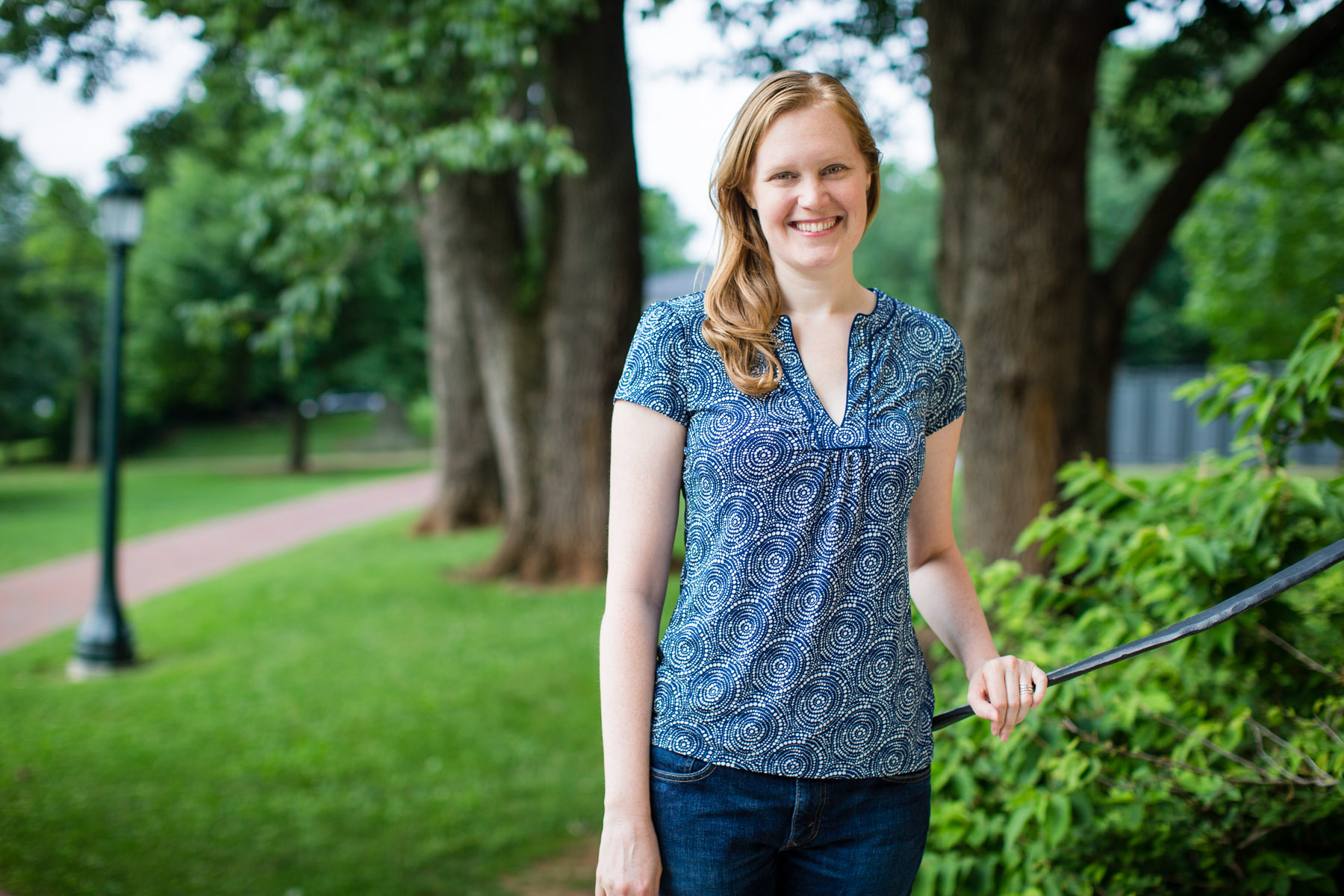Say an American man and Japanese woman get married and live in the U.S. They have a baby, but then the marriage falls apart, and the mother takes the child with her back to Japan, violating an American custody agreement. Because of the different laws and cultural traditions in the two countries, custody issues often ensue. The father has no recourse to get custody. The mother might allege domestic abuse as the reason for leaving. Some people call it kidnapping and others might call it a rescue.
These difficult situations, involving hundreds of children, have become a policy issue between Japan and other countries, including the U.S. Exact numbers of cases are unavailable, because not all of them reach the courts, experts say.
Allison Alexy, an assistant professor of anthropology in the University of Virginia’s College of Arts & Sciences, has been awarded an Abe Fellowship (pronounced “ah-bay”) to study international child-custody disputes – what she calls “nuclear divorces” between American and Japanese spouses. She will head to Tokyo in September to conduct her research project, “When Citizenship and Kinship Intersect: Comparing Japanese and American Responses to Transnational Child Custody Disputes.”
Her project hypothesizes that such differences stem from the disparate cultural, political and legal links between citizenship and kinship in each nation. Although it’s not uncommon for the mother to claim the husband/father is abusive, there are no reliable statistics, she said. Alexy’s goal is to examine how such conflicts are handled and make policy recommendations on how to solve these kinds of conflicts to improve the quality of the children’s lives, she said.
Of the international marriages registered in Japan, about 25 percent are with non-Japanese partners but accurate numbers are impossible to come by, Alexy said. Some marriages might be registered in Japan and others might be registered in the other spouse’s country, but there is no requirement to register in both countries, she said.
Although international custody disputes are statistically unusual, they are politically important, Alexy said. The timing of her trip has assumed added relevance with recent political news.
On June 12, the Japanese government approved legislation to join the 1980 Hague Convention on the Civil Aspects of International Child Abduction. Japan has faced increasing pressure to ratify the treaty, which sets out rules and procedures for the prompt return of children under 16 who’ve been taken or kept by one parent, if requested by the other parent. Japan will be the 90th country to sign the treaty.
The topic was part of the agenda for discussion earlier this year when the Japanese prime minister met with President Barack Obama. The U.S. State Department and the Japanese Foreign Ministry have also talked about it.
“Japan doesn’t have joint custody, unlike the U.S., and 80 percent of the time, custody is awarded to the mother,” Alexy said, because that is what’s considered in the child’s best interest. “Conflicts occur when divorcing parents disagree about how to determine custody of their children, who typically hold multiple citizenships.”
Because of the sole custody law, if a Japanese mother takes the child or children from an American home and moves back to Japan, there isn’t a legal mechanism to help the father work out a way to spend time with the children. Even though visitation among divorced Japanese parents can be worked out legally, it is not the standard practice, she said.
Similar to America, family norms have been shifting in Japan. Despite the traditional image of the mother staying home to care for children while the father works to support them, that’s no longer the dominant actual practice, Alexy explained. The divorce rate in Japan is approximately 35 percent. Nevertheless, “family remains one of the most powerful idioms to describe Japaneseness,” she said.
“Japanese people, in general, think it’s too traumatizing for children to split their time between living with the mother and the father. They tend to think it’s better for children to have a clean break,” she said.
Alexy, who will be affiliated with Waseda University, will interview policy makers, attorneys, judges, consultants and others who work on child-custody issues. As Japan works out how to put into practice the Hague Convention, she’ll be there, at least for the first year.
The Abe Fellowship, which generously covers salary, travel, research and living expenses, is a joint program administered by the Social Science Research Council, with the Japan Foundation Center for Global Partnership providing the funding. Shintaro Abe, a former Japanese minister of foreign affairs, (whose son, Shinzo Abe, is the current prime minister of the country) founded the center in 1991.
About 14 fellowships are awarded each year to mostly American and Japanese researchers, who are often military personnel or political scientists, said Alexy, who earned her Ph.D. in anthropology from Yale University in 2008. The fellowship’s financial support varies depending on the project.
“It’s exciting for me personally and I’m honored that anthropology is considered to contribute something valuable to the conversation,” said Alexy, adding that her department and the dean’s office have been supportive of her project.
Anthropology does well representing the complexity of different cultures rather than looking for simple answers, she said. Anthropologists often try to explain why people view the world the way they do and make the assumptions they make.
“There are other ways of living and believing, other options that are legitimate,” she said.
Alexy began studying the Japanese language as an undergraduate at the University of Chicago and then applied that knowledge when she became interested in anthropology, she said.
Her new project grew out of her previous research focused on divorce in Japan, and she is putting the finishing touches on a book manuscript, “Divorce and the Romance of Independence in Contemporary Japan.” After she began publishing articles about the subject about five years ago, she began receiving calls from consultants asking her opinion on international child-custody disputes.
Media Contact
Article Information
June 19, 2013
/content/what-s-best-children-uva-anthropologist-will-research-transnational-child-custody-issues

